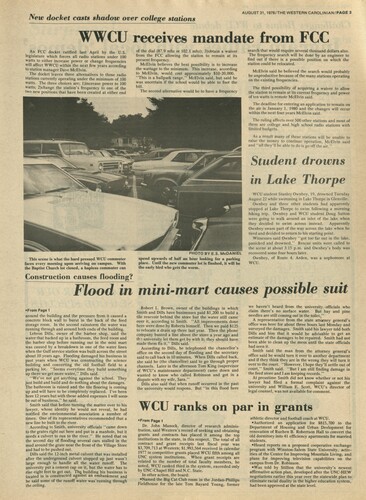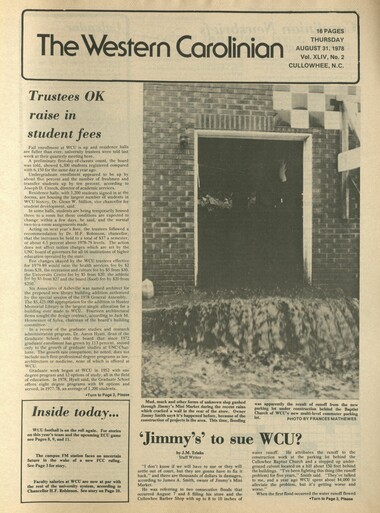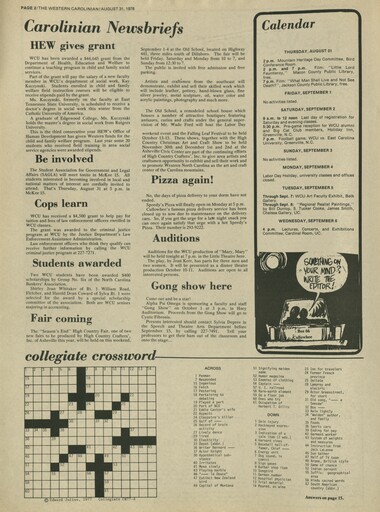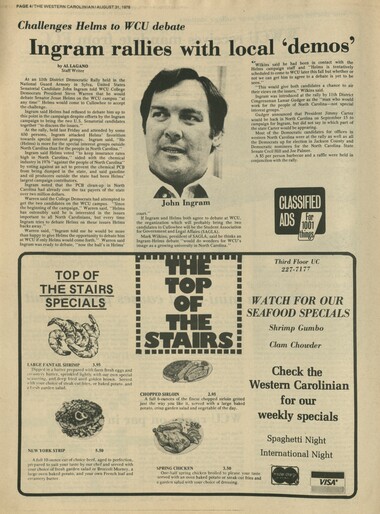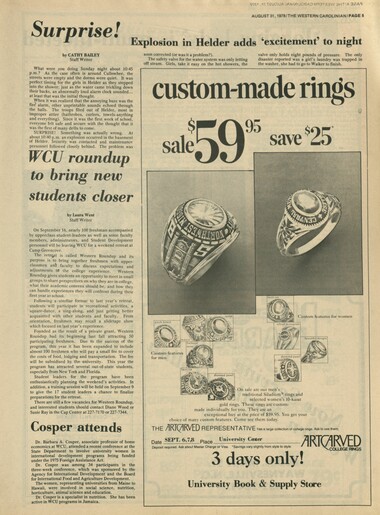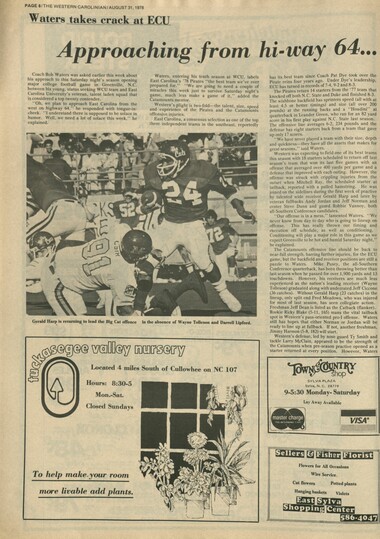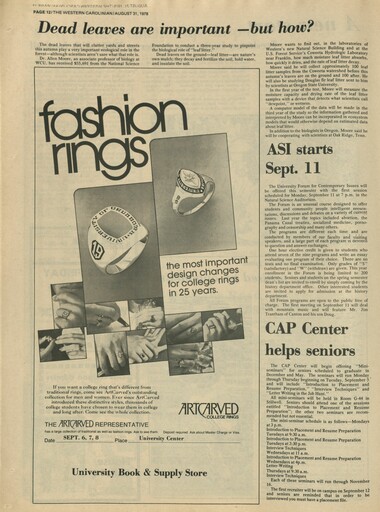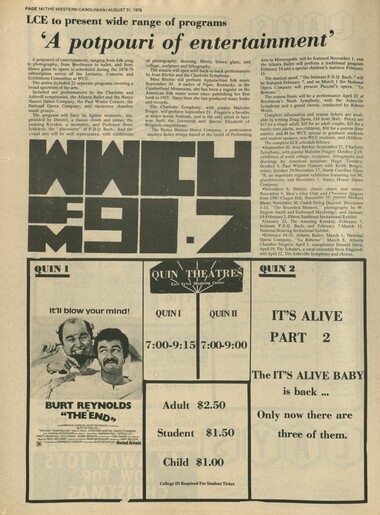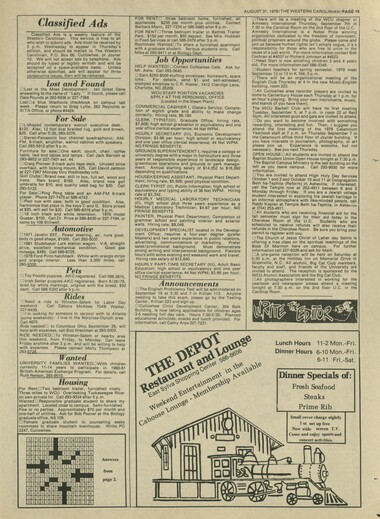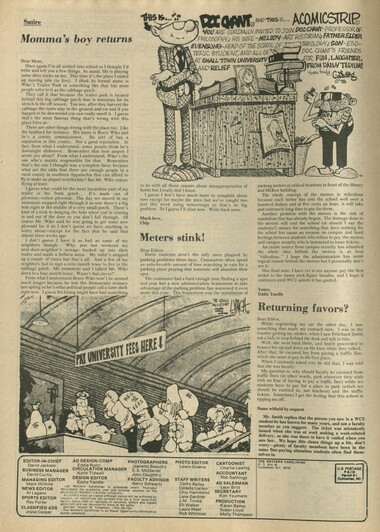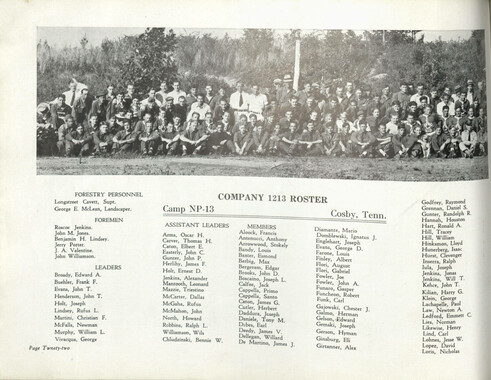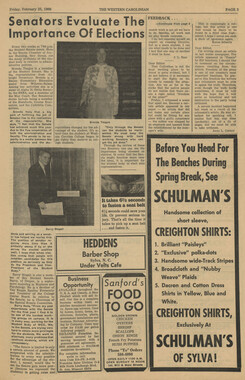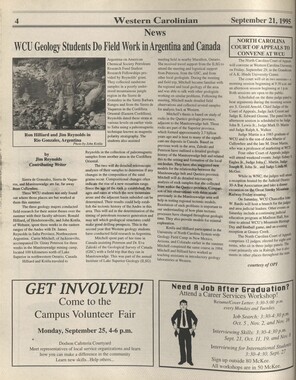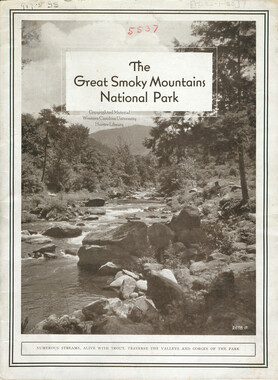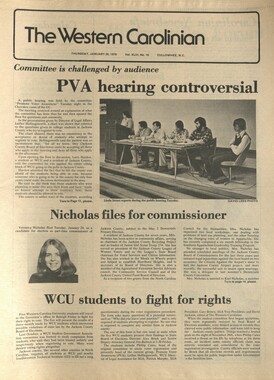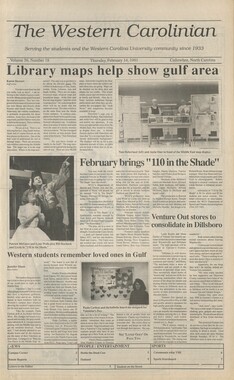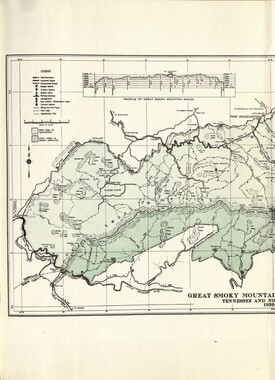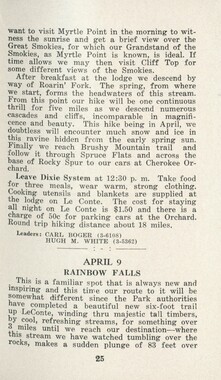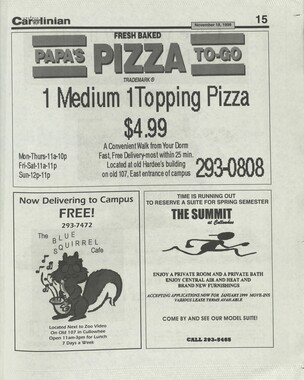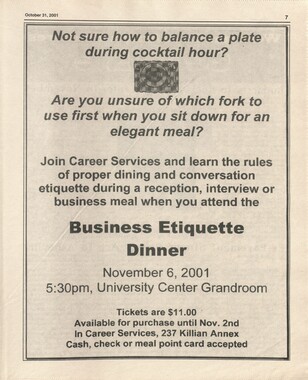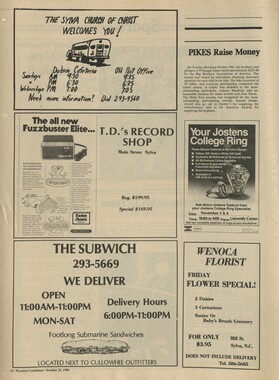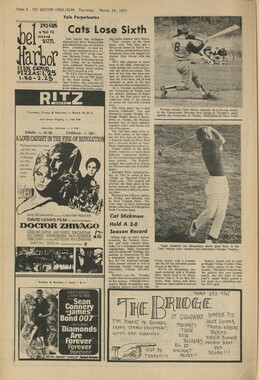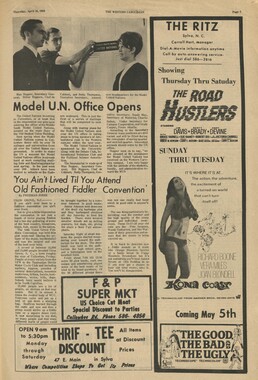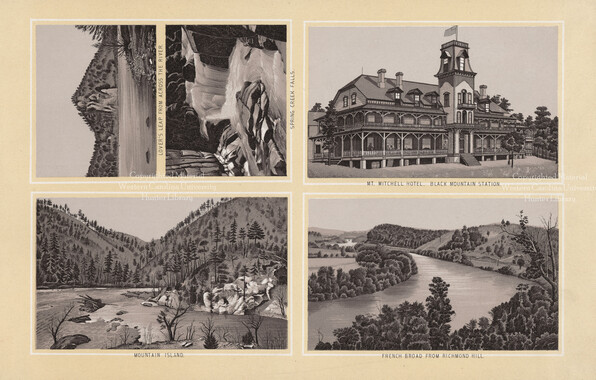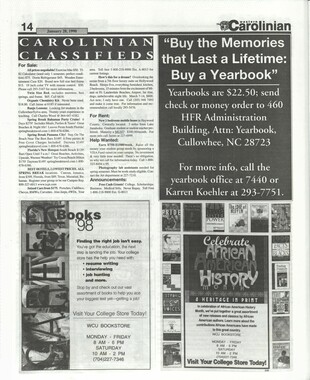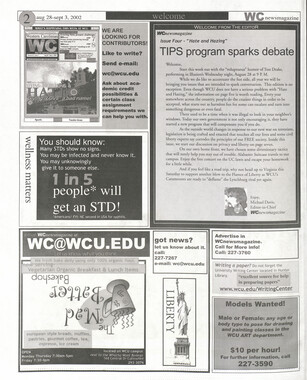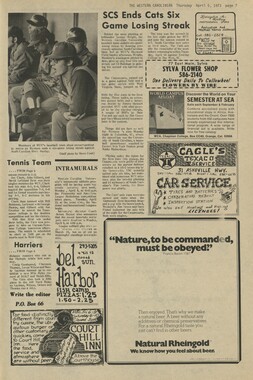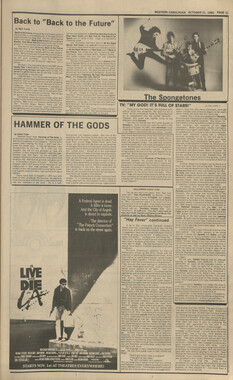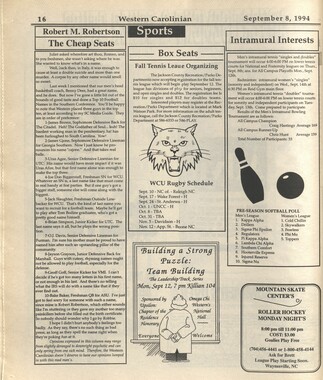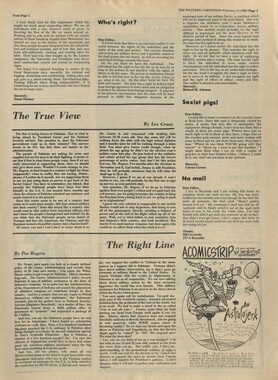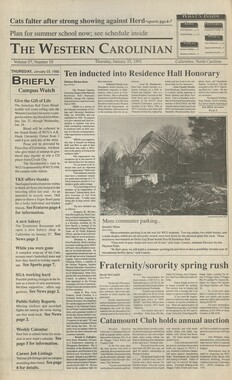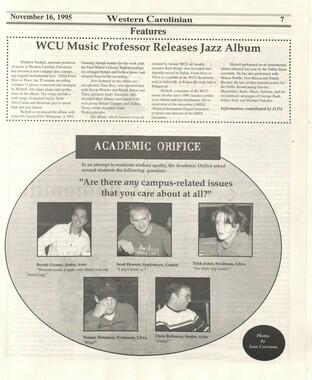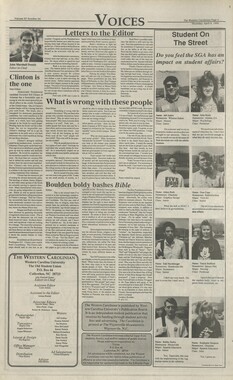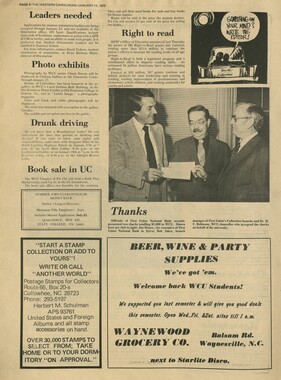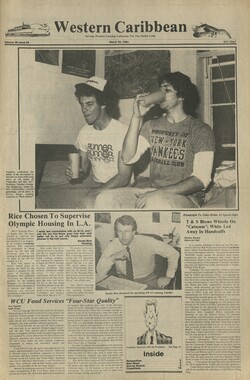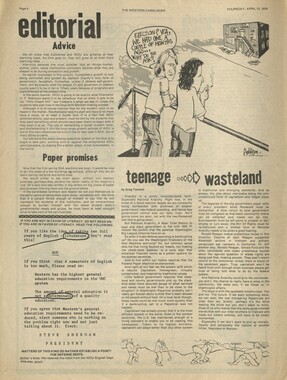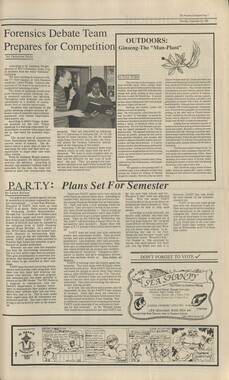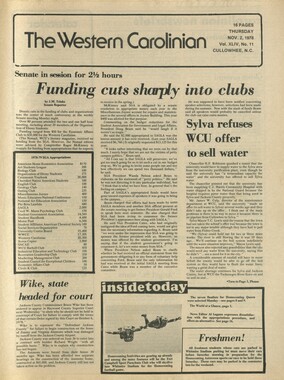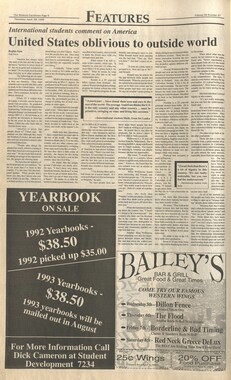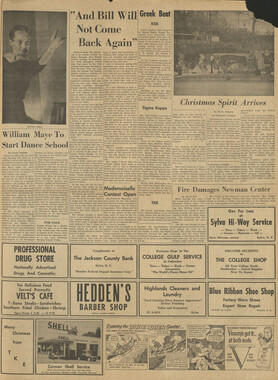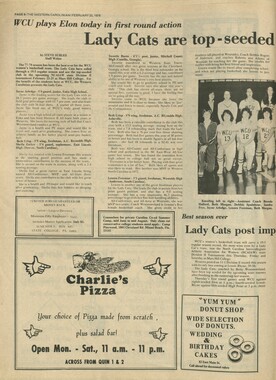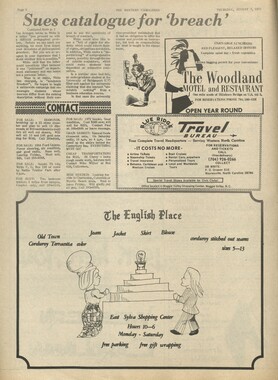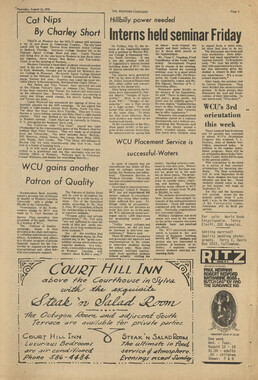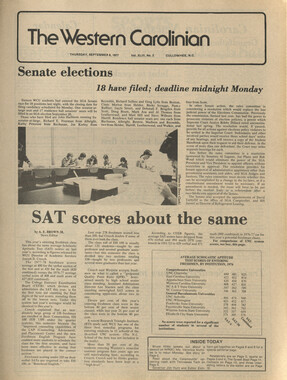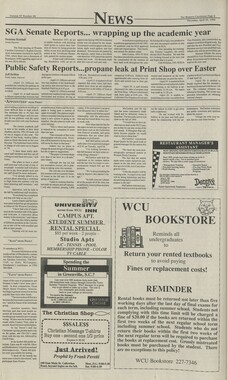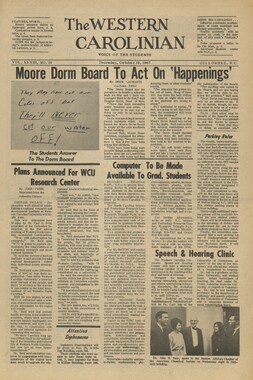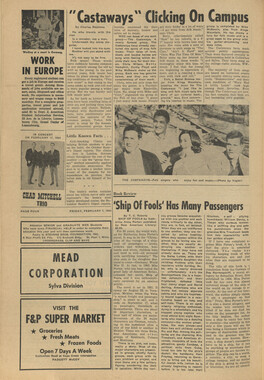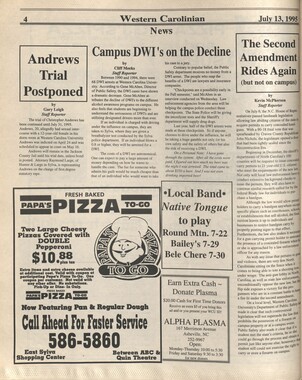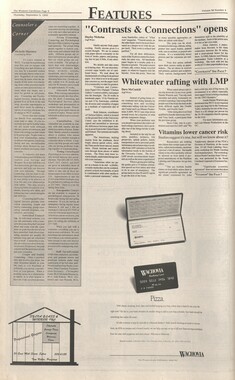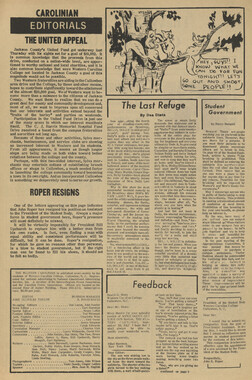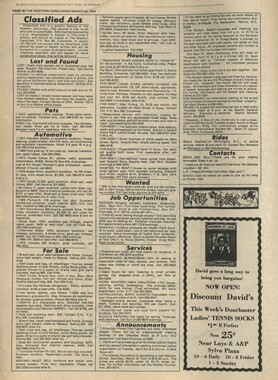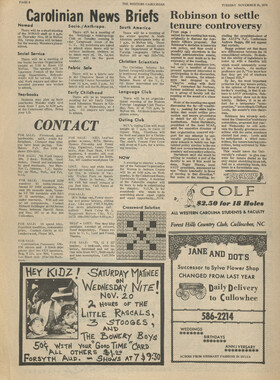Western Carolina University (20)
View all
- Canton Champion Fibre Company (2308)
- Cherokee Traditions (293)
- Civil War in Southern Appalachia (165)
- Craft Revival (1942)
- Great Smoky Mountains - A Park for America (2767)
- Highlights from Western Carolina University (430)
- Horace Kephart (941)
- Journeys Through Jackson (154)
- LGBTQIA+ Archive of Jackson County (27)
- Oral Histories of Western North Carolina (314)
- Picturing Appalachia (6772)
- Stories of Mountain Folk (413)
- Travel Western North Carolina (160)
- Western Carolina University Fine Art Museum Vitreograph Collection (129)
- Western Carolina University Herbarium (92)
- Western Carolina University: Making Memories (708)
- Western Carolina University Publications (2283)
- Western Carolina University Restricted Electronic Theses and Dissertations (146)
- Western North Carolina Regional Maps (71)
- World War II in Southern Appalachia (131)
University of North Carolina Asheville (6)
View all
- Allanstand Cottage Industries (62)
- Appalachian National Park Association (53)
- Bennett, Kelly, 1890-1974 (1388)
- Berry, Walter (76)
- Brasstown Carvers (40)
- Carver, George Washington, 1864?-1943 (26)
- Cathey, Joseph, 1803-1874 (1)
- Champion Fibre Company (233)
- Champion Paper and Fibre Company (297)
- Cherokee Indian Fair Association (16)
- Cherokee Language Program (22)
- Crowe, Amanda (40)
- Edmonston, Thomas Benton, 1842-1907 (7)
- Ensley, A. L. (Abraham Lincoln), 1865-1948 (275)
- Fromer, Irving Rhodes, 1913-1994 (70)
- George Butz (BFS 1907) (46)
- Goodrich, Frances Louisa (120)
- Grant, George Alexander, 1891-1964 (96)
- Heard, Marian Gladys (60)
- Kephart, Calvin, 1883-1969 (15)
- Kephart, Horace, 1862-1931 (313)
- Kephart, Laura, 1862-1954 (39)
- Laney, Gideon Thomas, 1889-1976 (439)
- Masa, George, 1881-1933 (61)
- McElhinney, William Julian, 1896-1953 (44)
- Niggli, Josephina, 1910-1983 (10)
- North Carolina Park Commission (105)
- Osborne, Kezia Stradley (9)
- Owens, Samuel Robert, 1918-1995 (11)
- Penland Weavers and Potters (36)
- Roberts, Vivienne (15)
- Roth, Albert, 1890-1974 (142)
- Schenck, Carl Alwin, 1868-1955 (1)
- Sherrill's Photography Studio (2565)
- Southern Highland Handicraft Guild (127)
- Southern Highlanders, Inc. (71)
- Stalcup, Jesse Bryson (46)
- Stearns, I. K. (213)
- Thompson, James Edward, 1880-1976 (226)
- United States. Indian Arts and Crafts Board (130)
- USFS (683)
- Vance, Zebulon Baird, 1830-1894 (1)
- Weaver, Zebulon, 1872-1948 (58)
- Western Carolina College (230)
- Western Carolina Teachers College (282)
- Western Carolina University (1794)
- Western Carolina University. Mountain Heritage Center (18)
- Whitman, Walt, 1819-1892 (10)
- Wilburn, Hiram Coleman, 1880-1967 (73)
- Williams, Isadora (3)
- Cain, Doreyl Ammons (0)
- Crittenden, Lorraine (0)
- Rhodes, Judy (0)
- Smith, Edward Clark (0)
- Appalachian Region, Southern (2399)
- Asheville (N.C.) (1917)
- Avery County (N.C.) (26)
- Blount County (Tenn.) (161)
- Buncombe County (N.C.) (1671)
- Cherokee County (N.C.) (283)
- Clay County (N.C.) (555)
- Graham County (N.C.) (233)
- Great Smoky Mountains National Park (N.C. and Tenn.) (510)
- Haywood County (N.C.) (3522)
- Henderson County (N.C.) (70)
- Jackson County (N.C.) (4692)
- Knox County (Tenn.) (25)
- Knoxville (Tenn.) (12)
- Lake Santeetlah (N.C.) (10)
- Macon County (N.C.) (420)
- Madison County (N.C.) (211)
- McDowell County (N.C.) (39)
- Mitchell County (N.C.) (132)
- Polk County (N.C.) (35)
- Qualla Boundary (981)
- Rutherford County (N.C.) (76)
- Swain County (N.C.) (2113)
- Transylvania County (N.C.) (270)
- Watauga County (N.C.) (12)
- Waynesville (N.C.) (73)
- Yancey County (N.C.) (72)
- Aerial Photographs (3)
- Aerial Views (60)
- Albums (books) (4)
- Articles (1)
- Artifacts (object Genre) (228)
- Bibliographies (1)
- Biography (general Genre) (2)
- Cards (information Artifacts) (38)
- Clippings (information Artifacts) (191)
- Crafts (art Genres) (622)
- Depictions (visual Works) (21)
- Design Drawings (1)
- Drawings (visual Works) (184)
- Envelopes (73)
- Facsimiles (reproductions) (1)
- Fiction (general Genre) (4)
- Financial Records (12)
- Fliers (printed Matter) (67)
- Glass Plate Negatives (381)
- Guidebooks (2)
- Internegatives (10)
- Interviews (812)
- Land Surveys (102)
- Letters (correspondence) (1013)
- Manuscripts (documents) (619)
- Maps (documents) (177)
- Memorandums (25)
- Minutes (administrative Records) (59)
- Negatives (photographs) (5835)
- Newsletters (1285)
- Newspapers (2)
- Occupation Currency (1)
- Paintings (visual Works) (1)
- Pen And Ink Drawings (1)
- Periodicals (193)
- Personal Narratives (10)
- Photographs (12976)
- Plans (maps) (1)
- Poetry (7)
- Portraits (1960)
- Postcards (329)
- Programs (documents) (151)
- Publications (documents) (2237)
- Questionnaires (65)
- Scrapbooks (282)
- Sheet Music (2)
- Slides (photographs) (402)
- Songs (musical Compositions) (2)
- Sound Recordings (796)
- Specimens (92)
- Speeches (documents) (15)
- Tintypes (photographs) (8)
- Transcripts (322)
- Video Recordings (physical Artifacts) (23)
- Vitreographs (129)
- Text Messages (0)
- A.L. Ensley Collection (275)
- Appalachian Industrial School Records (7)
- Appalachian National Park Association Records (336)
- Axley-Meroney Collection (2)
- Bayard Wootten Photograph Collection (20)
- Bethel Rural Community Organization Collection (7)
- Blumer Collection (5)
- C.W. Slagle Collection (20)
- Canton Area Historical Museum (2110)
- Carlos C. Campbell Collection (282)
- Cataloochee History Project (65)
- Cherokee Studies Collection (4)
- Daisy Dame Photograph Album (5)
- Daniel Boone VI Collection (1)
- Doris Ulmann Photograph Collection (112)
- Elizabeth H. Lasley Collection (1)
- Elizabeth Woolworth Szold Fleharty Collection (4)
- Frank Fry Collection (95)
- George Masa Collection (173)
- Gideon Laney Collection (452)
- Hazel Scarborough Collection (2)
- Hiram C. Wilburn Papers (28)
- Historic Photographs Collection (236)
- Horace Kephart Collection (861)
- Humbard Collection (33)
- Hunter and Weaver Families Collection (1)
- I. D. Blumenthal Collection (4)
- Isadora Williams Collection (4)
- Jesse Bryson Stalcup Collection (47)
- Jim Thompson Collection (224)
- John B. Battle Collection (7)
- John C. Campbell Folk School Records (80)
- John Parris Collection (6)
- Judaculla Rock project (2)
- Kelly Bennett Collection (1407)
- Love Family Papers (11)
- Major Wiley Parris Civil War Letters (3)
- Map Collection (12)
- McFee-Misemer Civil War Letters (34)
- Mountain Heritage Center Collection (4)
- Norburn - Robertson - Thomson Families Collection (44)
- Pauline Hood Collection (7)
- Pre-Guild Collection (2)
- Qualla Arts and Crafts Mutual Collection (12)
- R.A. Romanes Collection (681)
- Rosser H. Taylor Collection (1)
- Samuel Robert Owens Collection (94)
- Sara Madison Collection (144)
- Sherrill Studio Photo Collection (2558)
- Smoky Mountains Hiking Club Collection (616)
- Stories of Mountain Folk - Radio Programs (374)
- The Reporter, Western Carolina University (510)
- Venoy and Elizabeth Reed Collection (16)
- WCU Gender and Sexuality Oral History Project (32)
- WCU Mountain Heritage Center Oral Histories (25)
- WCU Oral History Collection - Mountain People, Mountain Lives (71)
- WCU Students Newspapers Collection (1744)
- Western North Carolina Tomorrow Black Oral History Project (69)
- William Williams Stringfield Collection (2)
- Zebulon Weaver Collection (109)
- African Americans (390)
- Appalachian Trail (35)
- Artisans (521)
- Cherokee art (84)
- Cherokee artists -- North Carolina (10)
- Cherokee language (21)
- Cherokee pottery (101)
- Cherokee women (208)
- Church buildings (167)
- Civilian Conservation Corps (U.S.) (110)
- College student newspapers and periodicals (1830)
- Dams (103)
- Dance (1023)
- Education (222)
- Floods (61)
- Folk music (1015)
- Forced removal, 1813-1903 (2)
- Forest conservation (220)
- Forests and forestry (1058)
- Gender nonconformity (4)
- Great Smoky Mountains National Park (N.C. and Tenn.) (181)
- Hunting (38)
- Landscape photography (10)
- Logging (103)
- Maps (84)
- Mines and mineral resources (8)
- North Carolina -- Maps (18)
- Paper industry (38)
- Postcards (255)
- Pottery (135)
- Railroad trains (71)
- Rural electrification -- North Carolina, Western (3)
- School integration -- Southern States (2)
- Segregation -- North Carolina, Western (5)
- Slavery (5)
- Sports (452)
- Storytelling (245)
- Waterfalls -- Great Smoky Mountains (N.C. and Tenn.) (66)
- Weaving -- Appalachian Region, Southern (280)
- Wood-carving -- Appalachian Region, Southern (328)
- World War, 1939-1945 (173)
Western Carolinian Volume 44 Number 02
Item
Item’s are ‘child’ level descriptions to ‘parent’ objects, (e.g. one page of a whole book).
-
-
New docket casts shadow over college stations AUGUST 31, 1978/THE WESTERN CAROLINIAN/PAGE 3 WWCU receives mandate from FCC An FCC docket ratified last April by the U.S. legislature which forces all radio stations under 100 watts to either increase power or change frequencies will affect WWCU within the next few years according to station manager Dave MeElvin. The docket leaves three alternatives to those radio stations currently operating under the minimum of 100 watts. The three choices art-; ljincrease power to 100 watts; 2)change the station's frequency to one of the two new positions that have been created at either end of the dial (87.9 mhz or 102.1 mhz); 3)obtain a waiver from the FCC allowing the station to remain at its present frequency. MeElvin believes the best possibility is to increase the wattage to the minimum. This increasr. according to MeElvin, would cost approximately $10-20,000. "This is a ballpark range," Mcl-lvin said, but said he was uncertain if the school would be able to foot the bill. The second alternative would be to have a frequency This scene is what the hard pressed WCU commuter faces every morning upon arriving on campus. With the Baptist Church lot closed, a hapless commuter can Construction causes flooding? PHOTO BY E.S. McDANIEL spend upwards of half an hour looking for a parking place. Until the new commuter lot is Unshed, It will be the early bird who gets the worm. search that would require several thousand dollars also. The frequency search will be done by an engineer to find out if there is a possible position on which the station could be relocated. MeElvin said he believed the search would probably be unproductive because of the many stations operating on the existing frequencies. I lie third possibility of acquiring a waiver to allow the station to remain at its current frequency and power of ten watts is remote MeElvin said. I he deadline for entering an application to remain on the air is January 1, 1980 and the changes will occur within the next four years MeElvin said. The ruling affects over 500 other stations and most of them are college and high school radio stations with limited budgets. As a result many of these stations will be unable to raise the money to continue operation, MeElvin said and "all they'll be able to do is go off the air." Student drowns in Lake Thorpe WCU student Stanley Ownbey. 19, drowned Tuesday August 22 while swimming in Lake Thorpe in Glenville. Ownbey and three other student! had apparently stopped at Lake Thorpe to swim following a morning hiking trip. Ownbey and WCU student Doug Sutton were going to walk around an inlet of the lake when they decided to swim across instead. Apparently Ownbey swam part of the way across the lake when he tired and decided to return to his starting point. Witnesses said Ownbey "got too far out in the lake, panicked and drowned." Rescue units were called to the scene at about 3:15 p.m. and Ownbey's body was recovered some four hours later. Ownbey, of Route 4, Ardcn, was a sophomore at WCU. Flood in mini-mart causes possible suit •From Page 1 around the building and the pressure from it caused a concrete block wall to burst in the back of the feed storage room. In the second rainstorm the water was running through and around both ends of the building. Lebron Dills, owner of the barber shop, said the water that backed up in a bathroom, the feed room and the barber shop before running out in the mini mart was caused by a breakdown in one of the water lines when the Gulf service station was built across the street about 10 years ago. Flooding damaged his business in past years when WCU was constructing the science building and converting the old football field to a parking lot. "Seems everytime they build something up there we get more water," Dills said. "We've not got anything against the school. They just build and build and do nothing about the damages. The bathroom is ruined and the tile flooring is coming up and will have to be completely replaced. I've been here 12 years but with these added expenses 1 will soon> be out of business," he said. Smith said that before turning the matter over to his lawyer, whose identity he would not reveal, he had notified the environmental association a number of times. One of its representatives recommended that a new line be built to the river. According to Smith, university officials "came down to the grates right out here and put in a manhole, but it needs a culvert to run to the river." He noted that on the second day of flooding several cars stalled in the mud around the grate near the front of the Village Store and had to be pushed out. Dills said the 12-inch metal culvert that was installed after the underground culvert stopped up just wasn't large enough to handle all the water runoff. The university put a cement cap on it, but the water has to rise eight feet to get out. The. building his business is located in is constructed against an embankment and he said some of the runoff water was'running through the ceiling. Robert L. Brown, owner of the buildings in which Smith and Dills have businesses paid $1,200 to build a tile resevoir behind the store but the water still came over it, according to Smith. "All improvements done here were done by Roberts himself. Then we paid $125 to relocate a drain up there last year. Then the phone company busted a line above the store a year ago and th? university let them get by with it; they should have made them fix it," Dills said. According to Dills, he telephoned the chancellor's office on the second day of flooding and the secretary said to call back in 10 minutes. When Dills called back, she said he (the chancellor) said to go through proper channels. Later in the afternoon Tom King (supervisor of WCU's maintenance department) came down and wanted to know who called Robinson and got in a dispute with my wife, Sara." Dills also said that when runoff occurred in the past the university would respons. But "in this flood here we haven't heard from the university officials who claim there's no surface water. But hay and pine needles are still coming out in the toilet:/' A representative from the state attorney general's office was here for about three hours last Monday and surveyed the damages. Smith said his lawyer told both Dills and him that it would be advisable to get an estimate of the damages to be repaired. Smith had not been able to clean up the mess until the state officials had seen it. Smith said the man from the attorney general's office said he would turn it over to another department and if they think they are in the wrong they will turn it over to the court. "However, I hope they'll settle out of court," Smith said. "But I am still finding damage in the feed store and I am keeping records." At presstime Smith did not know whether or not his lawyer had filed a formal complaint against the university and William E. Scott, WCU's director of legal counsel, was not available for comment. WCU ranks on par in grants •From Page 1 Dr. John Manock, director of research administration, said Western's record of seeking and obtaining grants and contracts has placed it among the top institutions in the state, in this respect. The total of all contract and grant receipts last fiscal year was $3,709,713 at Western; $1,993,564 received in calendar 1977 in competitive grants placed WCU fifth among all UNC system institutions. When grant receipts are related to the number of total faculty members, he noted, WCU ranked third in the system, exceeded only by UNC-Chapel Hill and N.C. State. In other action, the board: •Named the Big Cat Club room in the Jordan-Phillips Fieldhouse for the late Tom Bayard Young, former athletic director and football coach at WCU. •Authorized an application for $815,700 to the Department of Housing and Urban Devlopment for renovation of Rueben B. Robertson Hall to convert the old dormitory into 41 efficiency apartments for married students. •Heard reports on a proposed cooperative exchange program with Winston-Salem State University, activities of the Center for Improving Mountain Living, and plans for improving television capabilities on the campus from Dr. Robinson. •Was told by Stillion that the university's newest affirmative action plan, developed after the UNC-HEW negotiations earlier this year over the statewide plan to eliminate racial duality in the higher education system, had been approved at the state level.
Object
Object’s are ‘parent’ level descriptions to ‘children’ items, (e.g. a book with pages).
-
The Western Carolinian is Western Carolina University’s student-run newspaper. The paper was published as the Cullowhee Yodel from 1924 to 1931 before changing its name to The Western Carolinian in 1933.
-

